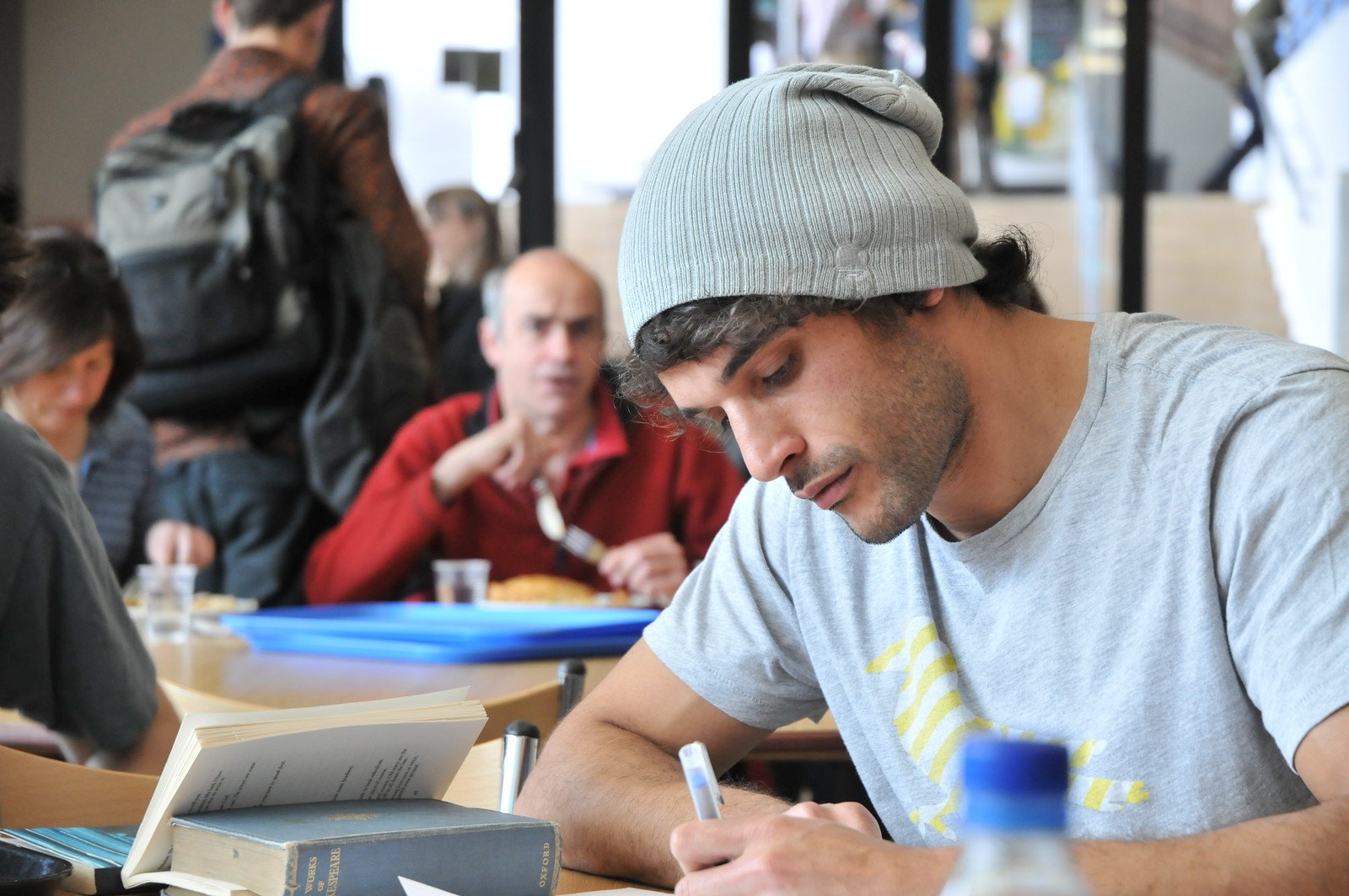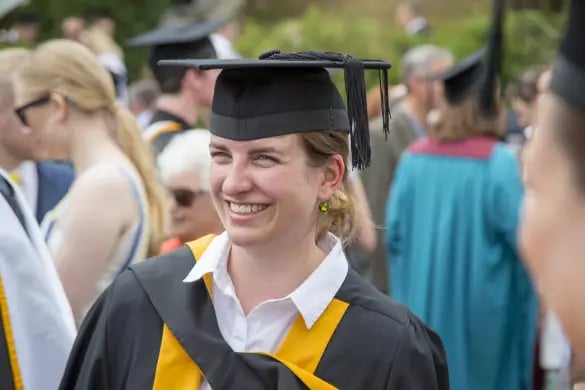While you apply
At Falmouth, we’re here to support you. As a flexible learning student, you are not on your own. In fact, you are at the centre of a network of support services and staff committed to your success.
Course advisors
Our course advisors, your first point of contact, will guide you through the features and benefits of our flexible learning programmes and online platform.
They are here to answer any questions you have on choosing the right course, the application process, and financial support.

While you study
Student advisors
Once you’ve started your course, student advisors are available to answer practical queries, give you tips on learning online effectively, and achieving work-life balance. They can also direct you to our specialist University support services.
Your global network
As a flexible learning student, you are part of a global community. Don’t be shy – reach out, discuss and collaborate with like-minded peers and learn from a wealth of diverse cultural perspectives.
Academic team
Our academics, experts in their field, are based all over the world. They are here to answer any questions you may have about the course content and guide you through the modules on your way to successfully completing your qualification.
Hear from current students in our Q&A:
Mat Chacon (MA Photography) and Shadia Ousta Doerfel (MA Illustration) discuss how they were supported to evolve and grow creatively throughout their programmes.
Want to watch the full webinar? Register to gain access.
You don't need to be a tech head at all. You don't need to have any prerequisites apart from the will to just be deconstructed, to be reconstructed by the course. Because I think one thing I didn't quite fully appreciate, as my mother said, isn't it just a bit of drawing? I'm like, no, it's not just a bit of drawing. There's a whole theory aspect as well to it.
So it wants to know who you are as an aestheticist, as an artist, as an Illustrator, as a practitioner. And then through the exercises, through the practical exercises, and through the research that you'll do, and even just the general development, you'll find out what suits you best. And I would also say, part of that journey is to expect the unexpected. We were told at the beginning to trust the process. Because I found the initial semester quite hard only because I wasn't used to thinking in a certain way and I wasn't used to looking at what I was doing in a certain way. But by the end of it, it was the making of me.
[MUSIC PLAYING]
- So I did that and actually turned that project into two separate exhibitions. And I've really been just pushing that project throughout the programme. It's evolved into something completely different than what it started. Like it's not even at all what it was when it started.
And I would say, with the help of the instructors, a couple of them in particular, they've really pushed me to stretch and evolve my practice. And not only have I evolved honestly outside of more photojournalism, which is what I would really focus on before, I've evolved into more fine art photography, which I dabbled in before. And as a result of that project, and just that helpful guidance, and that evolution, I've advanced into multiple exhibitions, two very successful here in Seattle. And that led to a couple long-term collaborations where I've been able to license my photography to be displayed in-- its fine art photography, but with a photojournalistic aesthetic actually. And the guidance of the instructors really helped me do that. So I've been able to license that photography to get displayed in like hotels and offices around the world. And it's been quite lucrative, to be honest with you, which is something I did not expect from a research program in an MA in photography. But it's been nice, and I'm very happy with the results.
[MUSIC PLAYING]
Graduation and beyond
Get your award in person
Celebrate your academic achievements with family and friends by attending graduation on campus.
As a flexible learning student, you are invited to travel to Falmouth University, to take part in our prestigious graduation ceremony where you will formally be awarded your degree alongside your peers.
After graduation
The support doesn't end when you complete your course. Find out more about Falmouth University's rich Alumni benefits.
Contact us
Why Falmouth?
Falmouth University has a history of more than 100 years of creative thinking. Today, we recognise that anyone should be able to access our first-class education. That's why our online courses give you the flexibility to learn at the times and places that suit you.
We're focused on your future - in the way we teach, what we teach and how we connect you to each other and the relevant industries for your passions and career. So, explore your options and how you’ll learn with us - get in touch, ask questions and see how we can help you.
.webp)



